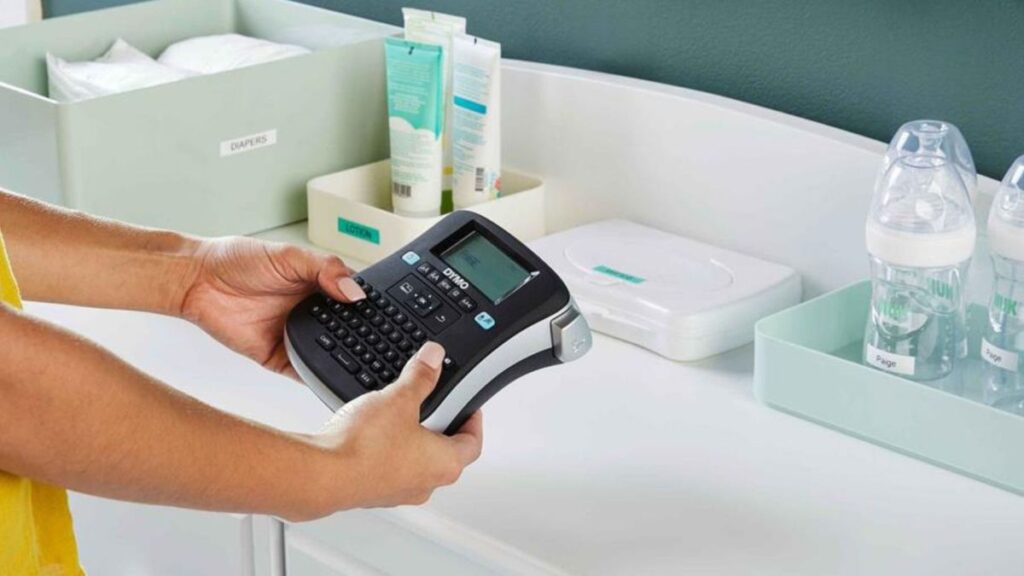Medical-Grade Dymo Printer and Small Label Solutions for the Healthcare Industry
In the healthcare industry, accurate labeling isn’t optional—it’s essential. From patient wristbands and vial labels to medication packaging and file folders, each label plays a crucial role in maintaining safety, traceability, and compliance. For many clinics, hospitals, and labs, the combination of a Dymo direct thermal printer and small-size label solutions offers a reliable, compact, and cost-effective answer to everyday labeling demands.
This article explores the best Dymo printers suited for medical use, the most compatible small-format direct thermal labels, and how these tools can improve efficiency and accuracy across medical operations.
Why Accurate Labeling Is Critical in Medical Settings
Improper or unclear labeling in healthcare environments can lead to serious consequences, including:
- Medication errors
- Misidentification of patient samples
- Compliance violations
- Legal and financial liabilities
Healthcare providers need labeling solutions that deliver:
- High legibility
- Chemical and smudge resistance
- Long-lasting adhesion
- Compatibility with medical workflows and software
Dymo direct thermal printers and small-format labels meet these requirements with minimal maintenance and maximum flexibility.
Advantages of Using Dymo Direct Thermal Printers in Healthcare
Dymo Label Writer series printers offer features well-suited to clinical settings:
1. No Ink or Toner Required
- Uses direct thermal technology
- Reduces maintenance and operating costs
2. Compact Size
- Fits easily in labs, nurse stations, or exam rooms
- Desktop-friendly design
3. Fast and Precise Printing
- Print speeds of up to 71 labels per minute (depending on model)
- Sharp text and barcode rendering
4. Integration with Common Platforms
- Works with Windows and macOS
- Compatible with label design software and EMR/EHR systems (with integration support)
Recommended Dymo Printer Models for Medical Use
Not all Dymo printers are created equal. Here are the top models to consider:
LabelWriter 450
- Supports labels up to 2.2″ wide
- Ideal for lab samples, vials, patient file folders
- Accepts third-party label rolls
LabelWriter 550 / 550 Turbo
- Same width as 450, but includes RFID label recognition
- Requires authentic or RFID-enabled labels
- Turbo version offers faster print speeds
LabelWriter 4XL and 5XL
- Support up to 4.16″ width
- Useful for large medical records, specimen shipping labels
- Better suited for administrative offices than bedside labeling
For most small-label applications, the 450 or 550 series will be the go-to choice.
Common Use Cases for Small Labels in Healthcare
Small-size direct thermal labels (typically under 1.5″ in width or height) are used extensively in:
1. Laboratories
- Specimen tubes and vials
- Test slides
- Reagent containers
2. Pharmacies
- Prescription bottle labeling
- Dosage instructions
- Inventory codes
3. Patient Care
- Wristband ID labels (applied to bands or tags)
- Chart labeling
- Room or bed assignment tags
4. Admin and Records
- Medical billing folders
- Insurance card covers
- File tab labels
Using properly formatted and sized labels ensures the data is easy to read, scannable, and stays affixed during transport and use.
Choosing the Right Label Size for Medical Tasks
Here are some of the most popular small-format label dimensions for healthcare:
Label Size Best For 1″ x 0.5″ Small vials, slides, caps 1.125″ x 3.5″ Wristband or folder ID strips 1.25″ x 2.25″ Syringes, bottles, equipment tags 1.5″ circle/oval Inventory and tray labels
Always verify the printer model supports the label size and format before bulk purchasing.
Printing Considerations for the Medical Field
1. Label Adhesion
Choose labels with permanent adhesive that can withstand refrigeration, humidity, and handling.
2. Readability and Scannability
Use barcodes or QR codes for samples and prescriptions. Dymo printers render clean, readable barcodes ideal for EMR/EHR integrations.
3. Chemical Resistance
Labels used in labs or pharmacies may come in contact with alcohol, acetone, or bleach. Opt for thermal materials that resist fading or smudging.
4. Compact Layouts
Use concise label templates to prevent clutter. Font legibility is key.
Workflow Optimization with Dymo Printers
A well-integrated label solution can improve workflow by:
- Reducing manual errors
- Speeding up intake and labeling processes
- Enabling quick identification of samples or equipment
Pairing Dymo printers with barcode-scanning systems further enhances these benefits.
Sustainability and Cost Control
Using direct thermal printers like Dymo eliminates the need for:
- Toner or ink refills
- Thermal transfer ribbons
- Long warm-up cycles or maintenance pauses
This reduces waste and keeps operational costs low—a key factor in budget-conscious healthcare facilities.
Why Betckey Labels Are a Smart Match for Medical Needs
Betckey offers a wide selection of small-format direct thermal labels designed for Dymo printers, ensuring high-definition print quality, strong adhesion, and consistent sizing. Whether you’re printing for lab samples, pharmacy bottles, or patient folders, Betckey helps healthcare professionals maintain safety, efficiency, and compliance.
With quality labels that perform under pressure, Betckey is a trusted ally in your labeling system. taba squishy
FAQs
Q1: Can Dymo printers be used in sterile or clinical environments?
Yes. Their small size and sealed mechanisms make them suitable for clean workstations. Ensure labels used are approved for medical or lab conditions.
Q2: Are small-format labels customizable for different hospital systems?
Absolutely. You can create custom templates using Dymo software or EMR-compatible design tools.
Q3: What if my label keeps smudging or falling off?
Make sure you’re using direct thermal labels designed for medical use. Also, verify the surface is dry and clean before application.






